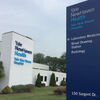Processing Your Payment
Please do not leave this page until complete. This can take a few moments.
-
News
-
Editions
-
- Lists
-
Viewpoints
-
HBJ Events
-
Event Info
- 2024 Economic Outlook Webinar Presented by: NBT Bank
- Best Places to Work in Connecticut 2024
- Top 25 Women In Business Awards 2024
- Connecticut's Family Business Awards 2024
- What's Your Story? A Small Business Giveaway 2024 Presented By: Torrington Savings Bank
- 40 Under Forty Awards 2024
- C-Suite and Lifetime Achievement Awards 2024
- Connecticut's Health Care Heroes Awards 2024
-
-
Business Calendar
-
Custom Content
- News
-
Editions
View Digital Editions
Biweekly Issues
- April 29, 2024
- April 15, 2024
- April 1, 2024
- March 18, 2024
- March 4, 2024
- February 19, 2024
- February 5, 2024
- January 22, 2024
- January 8, 2024
- + More
Special Editions
- Lists
- Viewpoints
-
HBJ Events
Event Info
- View all Events
- 2024 Economic Outlook Webinar Presented by: NBT Bank
- Best Places to Work in Connecticut 2024
- Top 25 Women In Business Awards 2024
- Connecticut's Family Business Awards 2024
- What's Your Story? A Small Business Giveaway 2024 Presented By: Torrington Savings Bank
- 40 Under Forty Awards 2024
- C-Suite and Lifetime Achievement Awards 2024
- Connecticut's Health Care Heroes Awards 2024
Award Honorees
- Business Calendar
- Custom Content
Bioscience industry: Prescription drug safety net program is failing patients in CT
 Jodie Gillon
Jodie Gillon
Thousands of people across Connecticut live with chronic conditions such as cancer, arthritis or hemophilia and rely on prescription drugs to manage their health.
Many low-income and uninsured patients in our communities rely on safety net programs to access and afford their vital medications. Unfortunately, one such federal program, the 340B Drug Pricing Program, isn’t serving its intent for patients here or elsewhere in the country and instead has become a profit scheme for big pharmacies and big hospitals.
That’s why it’s so concerning that the Connecticut state legislature is considering legislation that will actually increase profits for these middlemen and not ensure access or affordability for the vulnerable patients who need it.
The 340B Drug Pricing Program is a federal program that requires pharmaceutical manufacturers to offer discounts on outpatient prescription drugs to certain hospitals, community health centers and providers. The program was originally intended to support uninsured, low-income, and vulnerable patients treated by providers, known as “covered entities.”
Over time, however, the 340B program has morphed into a profitable business venture for covered entities and for-profit “contract pharmacies,” enabling them to line their pockets with billions of dollars without increasing access to critical prescriptions for the neediest patients.
In practice, these covered entities mark up the cost of drugs from the discounted price they received through 340B, and pocket a sizable sum while patients end up paying much more than the acquisition cost. A 2020 report found that the average profit margin on 340B medicines dispensed through contract pharmacies was an astounding 72%, compared with just 22% for non-340B medicines.
Today, limited guardrails and oversight within the 340B program allow these practices to go unchecked as the program continues to balloon in size.
In fact, since 2010, the number of contact pharmacies has grown by over 8,000%. Instead of protecting patient access and ensuring 340B discounts are directly supporting vulnerable patients in our state in affording their medication, state legislators in Connecticut have proposed legislation that would enable exploitation of the 340B program to expand.
Senate Bill 8 would allow unlimited and unregulated use of contract pharmacies, without ensuring that guardrails are in place to prevent widespread abuse in 340B.
There is a complete lack of transparency and oversight regarding where 340B discounts actually go, and one study found that 340B program discounts do not translate into savings for patients, with most patients receiving 0% in prescription medication discounts even though the medication was purchased at a 340B discount.
SB 8 does nothing to resolve that issue – and goes in the other direction.
Recently, the 8th U.S. Circuit Court of Appeals struck a decision that will enable contract pharmacies to continue these tactics – codifying an Arkansas state policy that mirrors SB 8 and would not do anything to limit 340B abuses. As a lawyer, it’s concerning to consider the precedent the Appeals court could set for other states to open the flood gates and embolden further exploitation of the 340B program.
Here in Connecticut, only 19% of contract pharmacies are located in medically underserved areas, and 94% of 340B hospitals in Connecticut are below the national average for charity care levels.
The original purpose of the 340B program has been completely ignored for decades and empowered middlemen to line their pockets while patients with chronic illnesses suffer the consequences.
As the collective voice of life sciences in the state of Connecticut, our first priority is a favorable policy ecosystem – and the first objective is ensuring that all patients in the state can access the medications they will benefit from.
Without transparency and accountability, we cannot ensure that 340B discounts will benefit patients. We urge Connecticut legislators to focus on patient-centered reforms that help the most vulnerable people in our community access their medicines.
We have approximately 250 members including many patient groups that welcome partnering to ensure the intended benefit – which was for the patients – is actualized.
Jodie Gillon is president and CEO of BioCT, an association that represents the state's bioscience industry.

2022 Giving Guide
This special edition informs and connects businesses with nonprofit organizations that are aligned with what they care about. Each nonprofit profile provides a crisp snapshot of the organization’s mission, goals, area of service, giving and volunteer opportunities and board leadership.
Learn more
Subscribe
Hartford Business Journal provides the top coverage of news, trends, data, politics and personalities of the area’s business community. Get the news and information you need from the award-winning writers at HBJ. Don’t miss out - subscribe today.
Subscribe
2024 Book of Lists
Delivering Vital Marketplace Content and Context to Senior Decision Makers Throughout Greater Hartford and the State ... All Year Long!
Read Here-
2022 Giving Guide
This special edition informs and connects businesses with nonprofit organizations that are aligned with what they care about. Each nonprofit profile provides a crisp snapshot of the organization’s mission, goals, area of service, giving and volunteer opportunities and board leadership.
-
Subscribe
Hartford Business Journal provides the top coverage of news, trends, data, politics and personalities of the area’s business community. Get the news and information you need from the award-winning writers at HBJ. Don’t miss out - subscribe today.
-
2024 Book of Lists
Delivering Vital Marketplace Content and Context to Senior Decision Makers Throughout Greater Hartford and the State ... All Year Long!
ABOUT
ADVERTISE
NEW ENGLAND BUSINESS MEDIA SITES
No articles left
Get access now
In order to use this feature, we need some information from you. You can also login or register for a free account.
By clicking submit you are agreeing to our cookie usage and Privacy Policy
Already have an account? Login
Already have an account? Login
Want to create an account? Register
Get access now
In order to use this feature, we need some information from you. You can also login or register for a free account.
By clicking submit you are agreeing to our cookie usage and Privacy Policy
Already have an account? Login
Already have an account? Login
Want to create an account? Register






0 Comments